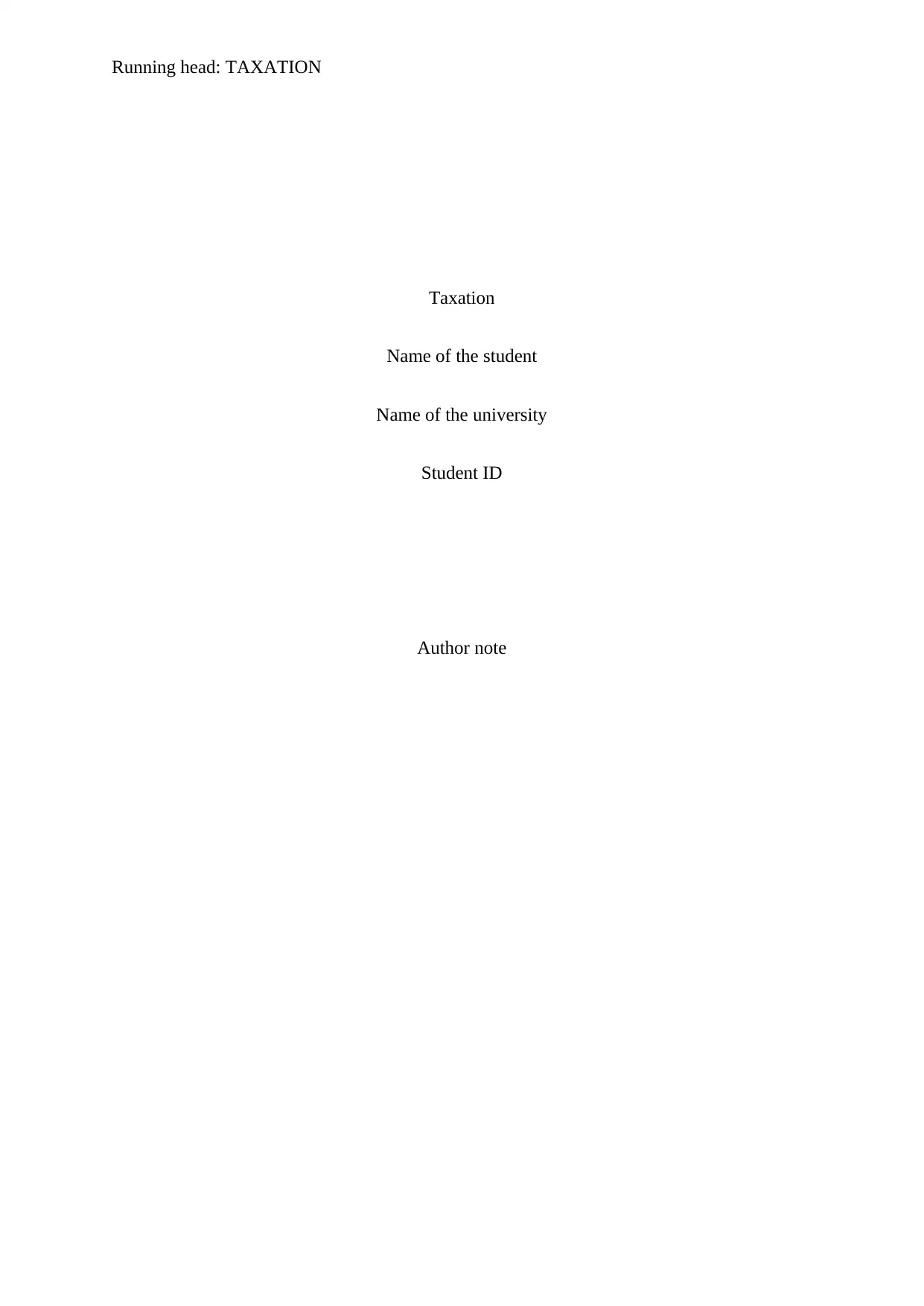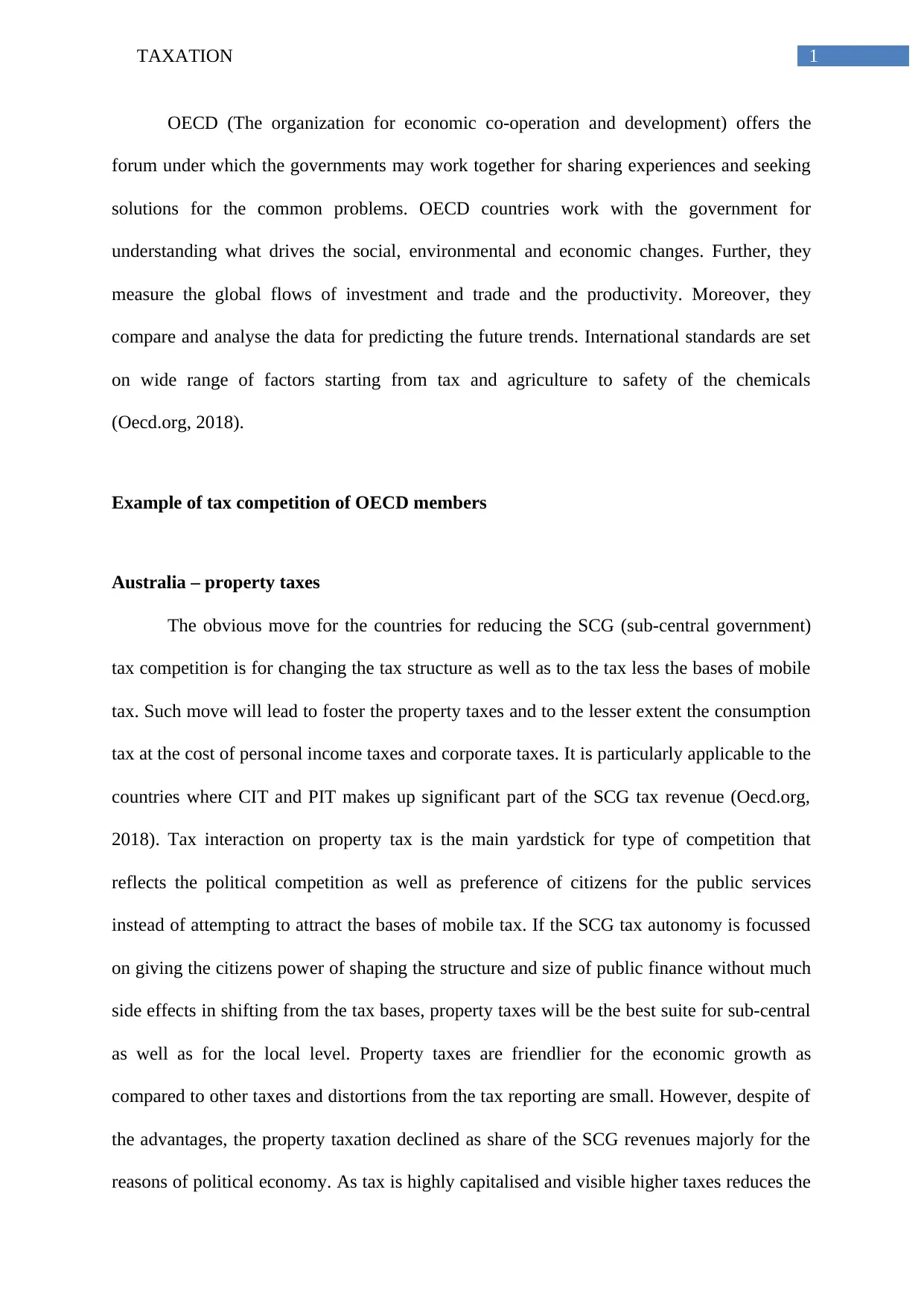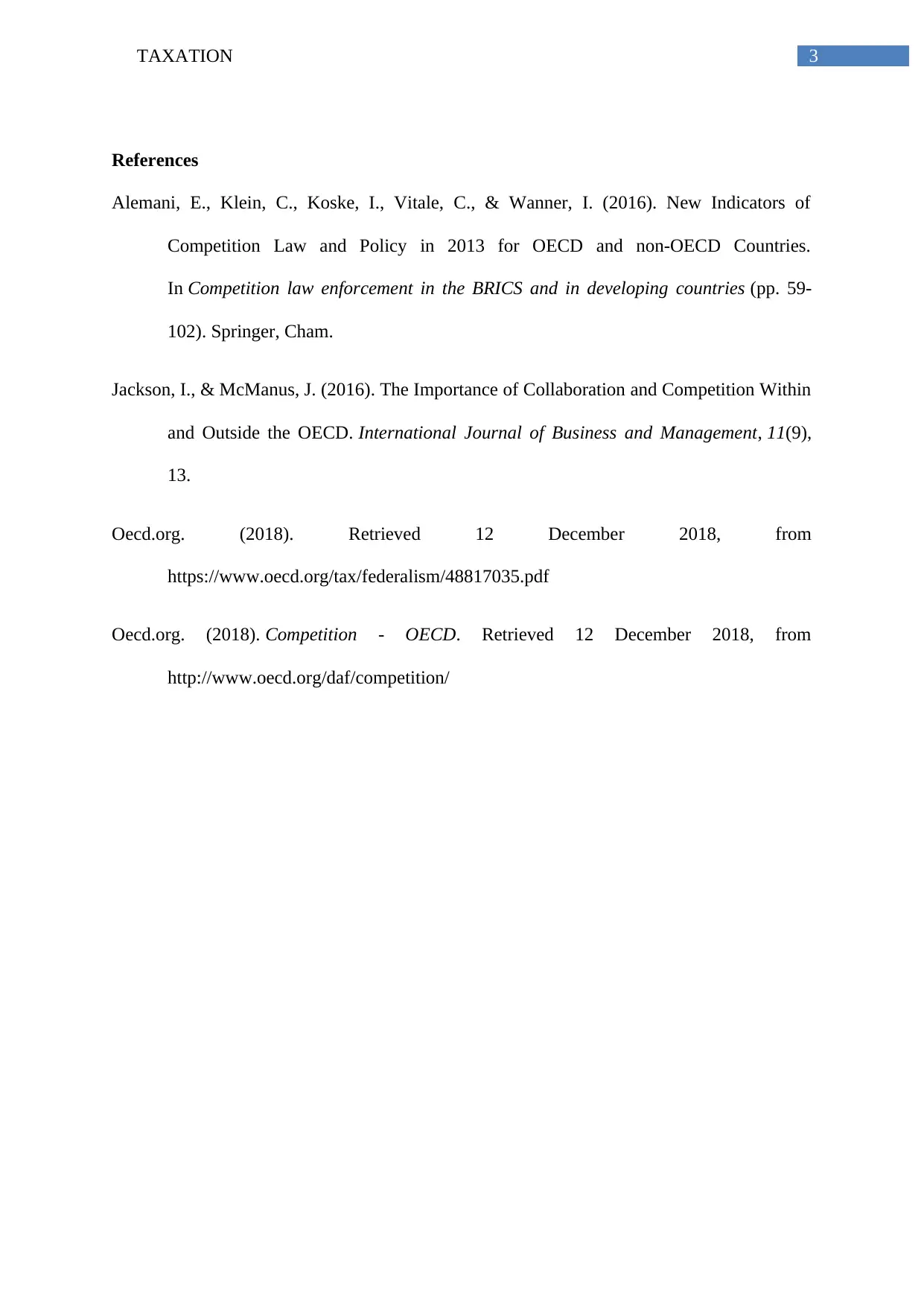Taxation Report: OECD's Role, Tax Competition, and Country Examples
VerifiedAdded on 2023/05/27
|4
|653
|406
Report
AI Summary
This report delves into the realm of taxation, particularly focusing on the role of the OECD (Organization for Economic Co-operation and Development) in fostering international cooperation and addressing common economic challenges. The report examines how OECD countries collaborate to understand and respond to social, environmental, and economic shifts, including the measurement and analysis of global trade and investment. A key aspect of the report is the analysis of tax competition among OECD members, using examples from Australia (property taxes) and Canada (personal income taxes). The report discusses the implications of tax structures, the impact of sub-central government tax policies, and the challenges in balancing economic growth with revenue generation. It also touches upon the mobility of tax bases and the influence of citizen preferences on public finance, providing insights into the dynamics of tax competition at both national and international levels. The report emphasizes the importance of understanding the interplay between tax policies and economic outcomes.
1 out of 4







![[object Object]](/_next/static/media/star-bottom.7253800d.svg)